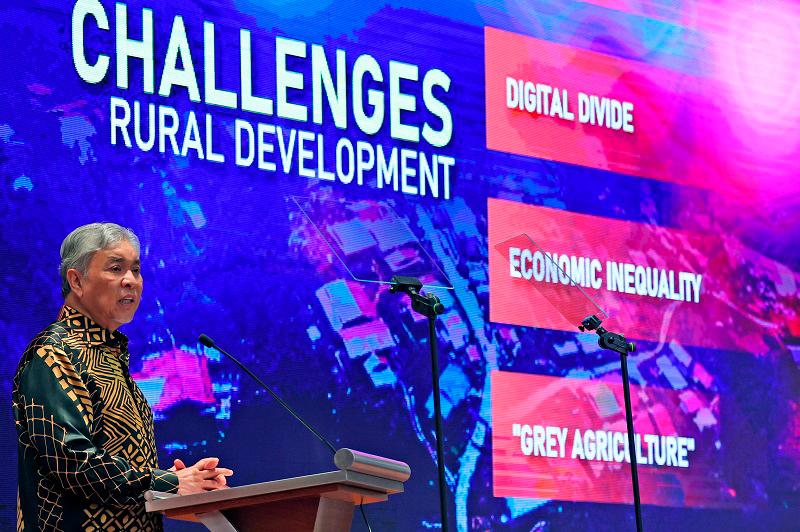PUTRAJAYA: The government invested RM10.49 billion in developing rural infrastructure, including roads, electricity, water supply and social amenities, in Orang Asli villages and remote areas from 2020 until June this year, said Deputy Prime Minister Datuk Seri Dr Ahmad Zahid Hamidi.
Ahmad Zahid, who is also Rural and Regional Development Minister, said this substantial investment underscores the government’s commitment to prioritising the well-being and upliftment of rural communities.
“Robust infrastructure attracts investments, generates employment opportunities and promotes sustainable agricultural practices.
“By prioritising rural infrastructure development, we lay the foundation for inclusive growth and poverty reduction,” he said in his opening speech at the National Symposium of Rural Planning and Development 2024 here today.
Also present was Housing and Local Government Minister Nga Kor Ming.
Ahmad Zahid said he understood the importance of developing rural infrastructure for the socioeconomic advancement of any nation.
He said high-quality infrastructure, including roads, bridges, healthcare facilities, schools and digital connectivity, are all fundamental to effective rural development.
Improved infrastructure facilitates access to markets, allowing farmers to sell their products more efficiently and secure better prices, he said.
“Enhanced healthcare and educational facilities boost the quality of life, reduce rural-to-urban migration, and enable rural populations to contribute more effectively to the economy,” he said.
Ahmad Zahid said there is also a need to embrace digital technologies and Artificial Intelligence (AI) to revolutionise rural economies.
“Digitalisation can enhance agricultural productivity, improve healthcare delivery and create new economic opportunities.
“AI, on the other hand, can be leveraged to provide smart solutions in farming, resource management, and disaster response,” he said.
At the ceremony, Ahmad Zahid also launched the Spatial Characteristics of Rural Malaysia System (S-CHARMs), which can be used by all agencies, higher learning institutions and non-governmental organisations to get information on rural infrastructure, land, and village profiles in Peninsular Malaysia and the Federal Territory of Labuan.
S-CHARMs was developed by the Housing and Local Government Ministry through PLANMalaysia.









